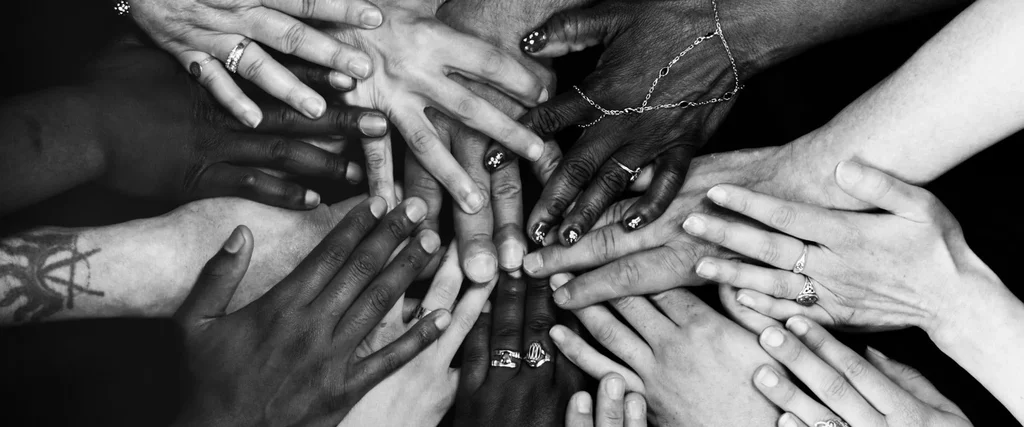

12 May 2022
Supply Chain Due Diligence Law – who is affected and how does its implementation work?
By Philippe Zimmermann
What is the new supply chain law?
The Supply Chain Due Diligence Act, also known as “Lieferkettensorgfaltspflichtengesetz”, “LkSG” or “Act on Corporate Due Diligence to Prevent Human Rights Violations in Supply Chains”, was passed by the Grand Coalition at the end of June 2021. As part of their corporate compliance, companies operating in Germany are thereby obliged to take measures against human rights violations and environmental damage in their supply chains.
Originally, the German government had hoped for a voluntary approach: If a majority of German companies were to comply with the measures of the so-called “National Action Plan for Business and Human Rights of 2016 in the Federal Republic of Germany”, there would be no legal obligation. But surveys in 2020 showed that 83% to 87% of the companies polled had simply not followed this action plan – and had hoped for the volunteer efforts of other companies. There is a certain sad irony in the fact that business owners must be forced to take action against forced labor (and worse).
What are companies obligated to do now?
The Supply Chain Act requires companies to take basic precautionary and documentation measures. Specifically, this means:
- the establishment of a risk management system
- the definition of internal responsibilities
- regularly conducted risk analyses
- the publication of a policy statement
- anchoring preventive measures in the internal business area as well as vis-à-vis direct suppliers
- taking corrective action
- the establishment of a complaints procedure
- the implementation of due diligence measures (in relation to risks with indirect suppliers)
- accumulating documentation must be kept for up to seven years
- an annual report on the measures taken must be made available to the public free of charge and online
In the future, the German Federal Office of Economics and Export Control will be entrusted with monitoring compliance with this law. Companies that fail to comply will face severe penalties: the list of fines ranges up to 800,000 euros for companies with annual sales of less than 400 million euros. Larger companies above this threshold face fines of up to two percent of global annual sales. And any penalty over 175,000 euros can lead to exclusion from public contracts – for up to three years.
The full content of the Supply Chain Sourcing Obligations Act in its currently valid form can be found on the website of the German Federal Ministry of Justice; the law in its version that will be valid from 2023 can be found on buzer.de.
Which companies are affected by LkSG – and when does it take effect?
From 2023, the Supply Chain Act will apply to all companies that employ at least 3,000 employees in Germany (including personnel posted abroad) and that
- either “have their head office, their principal place of business, their administrative headquarters or their statutory seat in Germany”
- or operate a branch within the meaning of Section 13d of the German Commercial Code in Germany.
From 2024, the threshold for the number of employees will fall to 1,000. And, to accommodate clever company constructions, Section 1 of the LkGS already specifies that “within affiliated companies (Section 15 of the German Stock Corporation Act)”, “the employees employed in Germany by all companies belonging to the group must also be taken into account when calculating the number of employees […] of the parent company”.
But it is not only these tightening thresholds that are putting pressure on companies; the political wind from Brussels should also give pause for thought: Observers suspect that the German LkGS will serve as a template for a Europe-wide – and possibly more stringent – EU regulation.
Civil liability claims
It’s not just regulators who are threatening trouble; workers affected by human rights abuses abroad will now also be able to take civil action against responsible companies in Germany. To this end, the law allows NGOs and trade unions to take on representative roles (as long as they are not established for the sole purpose of bringing such claims).
There was already a small foretaste of this in 2021, when the nonprofit organization European Center for Constitutional and Human Rights filed criminal charges in Germany against Aldi, C&A, Hugo Boss and Lidl. The accusation was that all four companies had profited from source materials from Chinese forced labor. Similar charges were also filed in France and the Netherlands.
“If the reputation is already ruined …”, one could now say in a defeatist manner. But some of the companies accused in the above example were able to prove that they had already recognized the problem and had long since initiated appropriate countermeasures. This case shows that politics, civil society and business can indeed be all on the same page.
What are human rights violations?
Human rights are universal, indivisible and, above all, inalienable individual rights of freedom and autonomy to which everyone is entitled. The origins of this concept can be traced back to ancient Babylonia; however, the International Covenant on Civil and Political Rights and the International Covenant on Economic, Social and Cultural Rights of the United Nations are relevant to modern times and the Supply Chain Sourcing Obligations Act specifically. These are two conventions adopted in 1966 (came into effect in 1976, ratified in Germany in 1973), which gave legal form to the previously non-binding Universal Declaration of Human Rights of the UN. Also relevant to the Supply Chain Due Diligence Law are the Basel Convention on the Control of Transboundary Movements of Hazardous Wastes and their Disposal (1989), the ILO Core Labor Standards (1998), the Stockholm Convention on Persistent Organic Pollutants (2001), and the Minamata Convention on Mercury (2013).
That’s a lot of laws. But a look at the ILO core labor standards allows at least a rough gauge of potential human rights violations that might be occurring at suspiciously low-priced suppliers:
- forced or compulsory labor
- violation of the freedom of association and the right to collective bargaining
- lack of equal pay for male and female workers for work of equal value
- discrimination in employment and occupation
- work below the minimum age (child labor)

Which suppliers are covered by the Supply Chain Due Diligence Act?
To address the complexity of international trade in goods, the Supply Chain Due Diligence Act distinguishes the degree of responsibility for each supplier based on several factors.
For example, a distinction is made between a direct supplier (a contractual partner who supplies goods that are necessary for your value chain) and an indirect supplier (the latter is a necessary part of the supply chain, but not your direct contractual partner).
Appropriate preventive measures as defined by the LkSG must be taken with regard to direct suppliers. This means control measures, contractual assurances, and appropriate training and education – but most importantly, it means that human rights and environmental expectations must be established as a factor to be considered as early as the supplier selection process. In other words, instead of asking which of the most competitive suppliers complies with human rights, one should rather ask: Which of the suppliers that comply with human rights is the most competitive?
In the event of problems with indirect suppliers, i.e. those with whom there is no direct contractual relationship in this sense, companies must take action at the latest when they obtain “substantiated knowledge” of a possible human rights or environmental protection violation, for example through a complaints mechanism or media reports.
The Supply Chain Act does not impose direct fines on these suppliers (who are usually based abroad), but the legislator does suggest including contractual penalties or other sanctions in the company’s own repertoire of measures.
The Supply Chain Act is coming – how do you implement it?
As a first step, you should of course stop all human rights violations that you already know about and for which you are directly or indirectly responsible (think suspiciously low-priced suppliers). This is to say exaggeratedly: This law is a good opportunity to take a critical look at your own procurement chain.
If you work for a company that will be subject to the regulation as early as 2023, it is recommended that you make sure you implement your legal obligations in due time. Compliance should not be a foreign concept in a company of this size anyway: Corporate Social Responsibility (CSR) officers already in place must be given the necessary time and tools to be able to implement the required precautionary and documentation obligations.
Companies that will not be subject to the Supply Chain Duty of Care Act until 2024 will initially have a little more time to wait for the immediate legal consequences of this new law before tackling their own implementation. It is expected that, similar to the GDPR, legal certainty for all market participants will only emerge through individual court cases. However, smaller companies will also benefit from best practice solutions and expert advisors, which will already be established by January 1, 2024.
You might also like
Do you have any further questions?
Get in touch with us!



